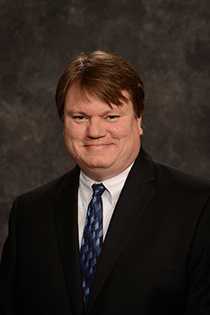The Texas A&M Engineering Experiment Station is home to many centers that demonstrate its excellent research capabilities and long track record of executing externally funded research projects.
Center for Advanced Small Modular and Micro Nuclear Reactors
The Center for Advanced Small Modular and Micro Nuclear Reactors (CASMR) is critical to advancing the nation’s and state’s leadership in advanced nuclear technology development. The massive winter storm that hit Texas in February 2021 challenged the state’s energy infrastructure. Millions lost electricity and heat. CASMR researchers will focus on research to help prevent another similar scenario. The scope of CASMR broadly encompasses materials, thermo-hydraulics and waste management. The center will conduct and promote research and development and innovation and education, and identify the cross-cutting technologies that support the deployment of small modular reactors and microreactors for clean and safe energy. This focus benefits industry, regulation, national labs, NASA and the U.S. Department of Defense.
Yassin A. Hassan
- Center for Advanced Small Modular and Micro Nuclear Reactors
- L.F. Peterson '36 Chair II Professor
- University Distinguished Professor
- Regents Professor
- Office: AIEN M203
- Phone: 979-845-7090
- Email: y-hassan@tamu.edu
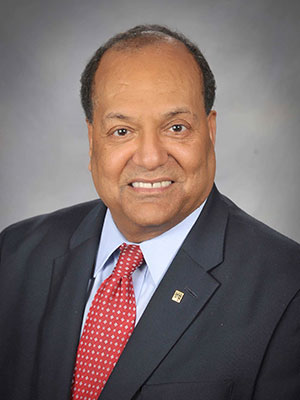
Center for Autonomous Vehicles and Sensor Systems
The mission of the Center for Autonomous Vehicles and Sensor Systems (CANVASS) is to unify research and development of autonomous vehicles and systems to better serve the state and nation. CANVASS is affiliated with the Texas A&M Engineering Experiment Station and the Texas A&M University College of Engineering. It is a multilaboratory center with investigators in various departments within the college. CANVASS facilitates engineering education and is a major conduit for the autonomous-systems engineering workforce of Texas. Current research interests include robotics, artificial intelligence, machine learning, autonomous vehicles, unmanned aerial vehicles and human-robot interaction.
Srikanth Saripalli
- Director, Center for Autonomous Vehicles and Sensor Systems
- Associate Professor
- Gulf Oil/Thomas A. Dietz Career Development Professor II
- Office: MEOB 214
- Phone: 979-458-0352
- Email: ssaripalli@tamu.edu
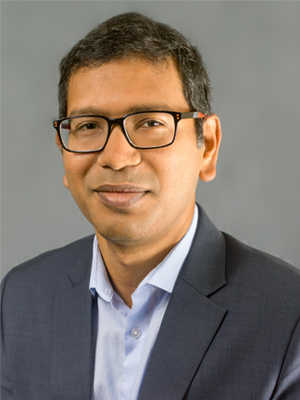
Center for Infrastructure Renewal
The Center for Infrastructure Renewal (CIR), a joint center between the Texas A&M Engineering Experiment Station and the Texas A&M Transportation Institute, will be the leading global source for the development of transformative infrastructure solutions. Through cross-industry and government agency collaboration, CIR will facilitate the creation of state-of-the-art methods, technologies and solutions that society needs for infrastructure renewal. Construction began September 2016 on the 138,000-square-foot research, testing and training facility. It was the first facility on the Texas A&M-RELLIS campus. CIR will house researchers who are developing advanced and sustainable materials and structural systems that will reduce costs and extend infrastructure life, safety, resiliency and durability.
Anand Puppala
- Director of the Center for Infrastructure Renewal
- Professor, Civil and Environmental Engineering
- A.P. & Florence Wiley Chair
- Phone: 979-458-6346
- Email: anandp@tamu.edu
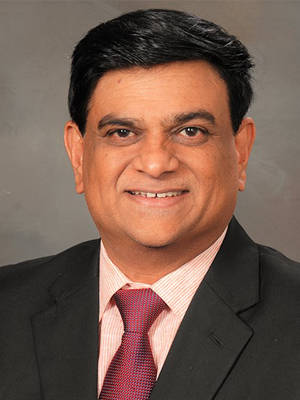
Center of Innovation in Mechanics for Design and Manufacturing
The threefold mission of the Center of Innovation in Mechanics for Design (CiMDM) and Manufacturing is: research; education and training and global collaborations; and industry and governmental lab outreach (provide consultancy and expert technical services to industry and also collaborative in research with government labs). The center aims to solve the need for mechanics support for early stage design and subsequent manufacturing. This is complementary to the advances in manufacturing techniques, sensor-based manufacturing process prognostics, supply chain innovations, and quality control measures. Developments and advances in mechanics are essential to gaining insight into the physics of these processes.
J.N. Reddy
- Director, Center of Innovation in Mechanics for Design and Manufacturing (CiMDM)
- Oscar S. Wyatt Jr. Chair Professor
- University Distinguished Professor
- Regents Professor
- Member, National Academy of Engineering
- Phone: 979-862-2417
- Email: jnreddy@tamu.edu
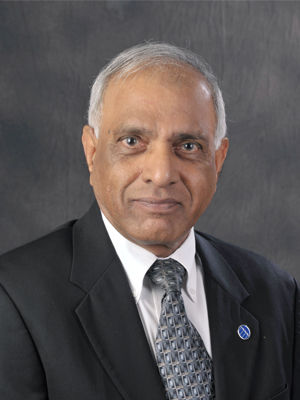
Center for Large-scale Scientific Simulations
The Center for Large-scale Scientific Simulations (CLASS) advances the state-of-the-art in large-scale scientific simulations and develops educational programs to train students for careers in modern scientific computation. Since its establishment, CLASS has built multi-disciplinary teams of faculty members and graduate students from several departments in the College of Engineering and the College of Science to work collaboratively, along with key researchers at national laboratories, on education and research relevant to computational multiphysics simulations.
Jim E. Morel
- Director, Center for Large-Scale Scientific Simulations (CLASS)
- Professor
- Phone: 979-845-6072
- Email: morel@tamu.edu
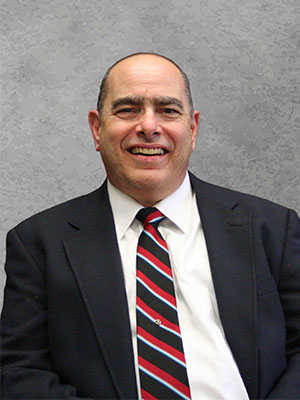
Center for Nuclear Security Science and Policy Initiatives
The Center for Nuclear Security Science and Policy Initiatives (NSSPI) is a joint TEES/Texas A&M center housed in the Nuclear Engineering Department and in collaboration with the George Bush School of Government and Public Service. The mission of NSSPI is to work collaboratively with national laboratories and other partners to develop and apply science and technology to detect, prevent, and reverse the proliferation of nuclear and radiological weapons and guard against nuclear terrorism; educate the next generation of leaders in the field of nuclear security sciences; and to study the policy implications of deploying new technologies.
Mansung Yim
- Director, Center for Nuclear Security Science and Policy Initiatives (NSSPI)
- Professor, Nuclear Engineering
- Office: AIEN M312
- Phone: 979-862-2616
- Email: msyim@tamu.edu
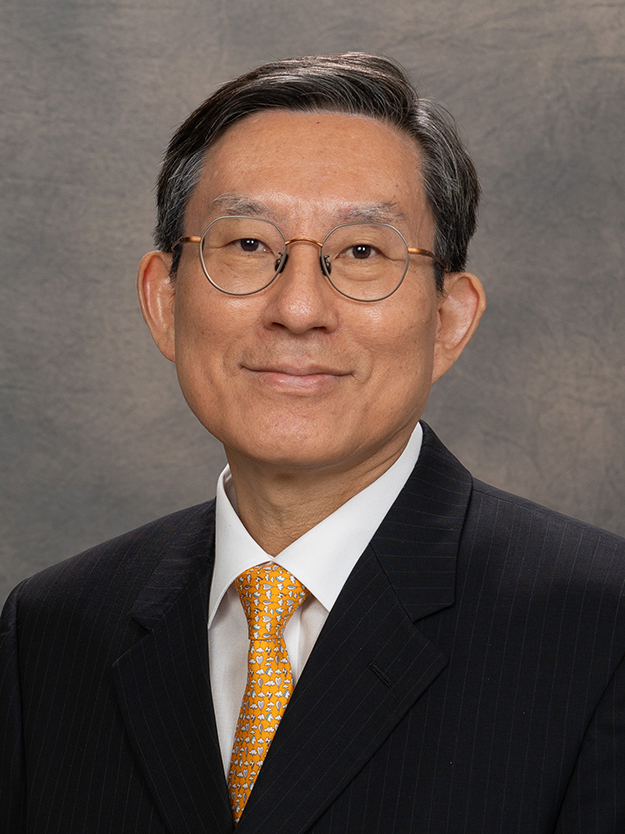
Center for Remote Health Technologies and Systems
The Center for Remote Healthcare Technologies and Systems’ mission is serve the state, nation and global community by addressing critical needs in healthcare, and in particular, in emergency and other situations where there is no doctor in close proximity but it is essential that timely care can be provided remotely. The center promotes fundamental research in medical devices and information systems that efficiently and reliably gather, process and convey medical and diagnostic data to physicians so they are able to provide care at a distance. The center performs fundamental research in both biomedical sensors and wireless systems to reliably and efficiently communicate information, and develops prototype systems that incorporate the results of the research and engages the medical device industry, state and federal agencies, and the medical community in design, development, testing and deployment of those systems.
Gerard L. Coté
- Associate Agency Director, Texas A&M Engineering Experiment Station
- Project Office Director for Health Initiatives, Strategic Advanced Research Unit, Texas A&M Engineering Experiment Station
- Director, Center for Remote Health Technologies and Systems
- Holder of the James J. Cain Professorship I
- Phone: 979-845-4196
- Email: gcote@tamu.edu
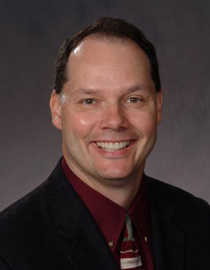
Energy Systems Laboratory
The Energy Systems Laboratory (ESL) focuses on energy-related research, energy efficiency and emissions reduction. Some of the ESL's specialized areas are optimization of commercial and industrial building operations, known as Continuous Commissioning ® ; enhancing overall energy efficiency in buildings through research, simulation, data analysis and outreach; conducting research and calibrated testing on HVAC systems; measurement and verification of energy savings for commercial buildings; and energy efficiency in industrial facilities.
David E. Claridge
- Director, Energy Systems Lab
- Professor
- Phone: 979-845-1280
- Email: dclaridge@tamu.edu
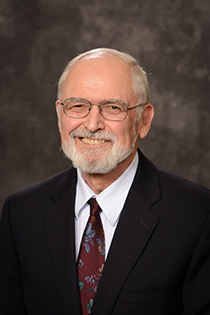
Gas and Fuels Research Center
The Gas and Fuels Research Center (GFRC) is a multidisciplinary research center led by Texas A&M University at Qatar involving 19 professors from Texas A&M’s main campus in College Station and the Qatar campus. The GFRC's key objective is to lead the integrated research activities and the resources of Texas A&M to support shale gas and natural gas exploration, production and monetization activities both in the United States and in Qatar.
Nimir Elbashir
- Director, Gas and Fuels Research Center (GFRC)
- Professor
- Phone: 974-4423-0128
- Email: nelbashir@tamu.edu
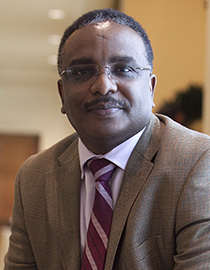
Institute for Engineering Education and Innovation
The Institute for Engineering Education’s (IEEI) mission is to serve as a focal point and academic resource for engineering education research for faculty and administrators in order to advance the practices of engineering education in the The Texas A&M University System and worldwide.
Karan L. Watson
- Interim Director, Institute for Engineering Education and Innovation (IEEI)
- Phone: 979-458-5315
- Email: watson@tamu.edu

Institute for Manufacturing Systems
The Institute for Manufacturing Systems was formed to provide coordination of research and education in the broad area of manufacturing systems. The institute serves as a focus for manufacturing research. The term “manufacturing” is used in its most broad sense and encompasses all aspects related to the production and distribution of goods, including product and process design and engineering, operations, marketing and sales and product life cycle management.
Amarnath Banerjee
- Professor, Industrial & Systems Engineering
- Phone: 979-458-2341
- Email: banerjee@tamu.edu
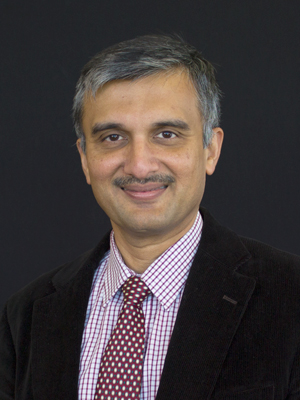
Mary Kay O’Connor Process Safety Center
The Mary Kay O’Connor Process Safety Center (MKOPSC) focuses on research to enhance safety in the chemical process industry. The center conducts research and develops undergraduate, graduate and continuing education programs. Its services to government and industry include independent accident investigation and analysis services, particularly for accidents suggesting new phenomena or complex technologies.Faisal Khan
- Director, Mary Kay O'Connor Process Safety Center
- Phone: 979-219-8700
- Email: fikhan@tamu.edu
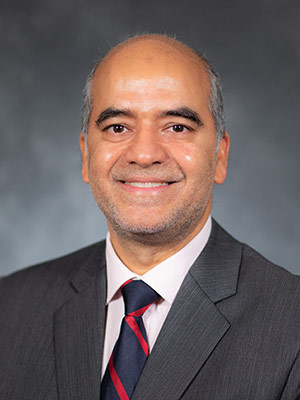
National Center for Therapeutics Manufacturing
The National Center for Therapeutics Manufacturing (NCTM) is a first-of-its-kind, multi-disciplinary workforce education institution and biopharmaceutical manufacturing center, located at Texas A&M University in College Station, Texas. The NCTM’s workforce development mission is to provide education, training, and outreach programs to produce a highly skilled workforce for the vital U.S. and global pharmaceutical industry.
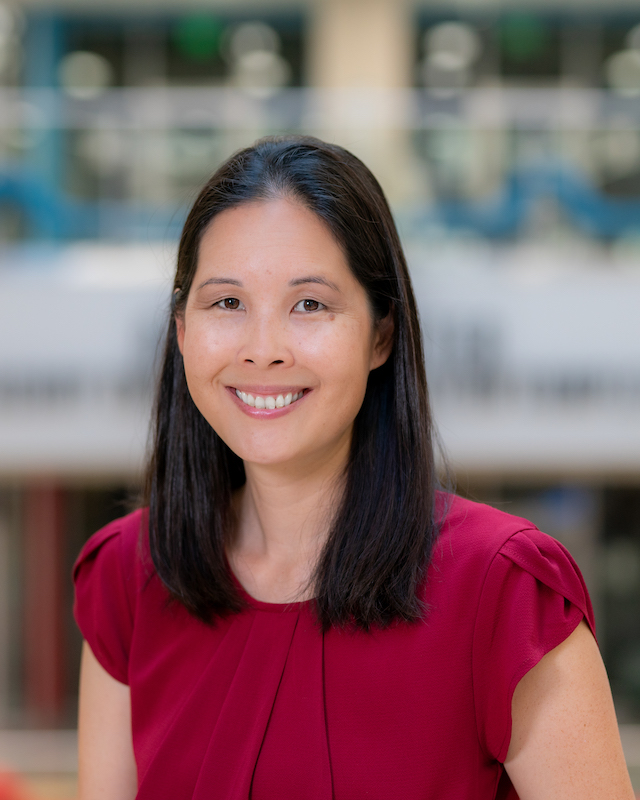
Nuclear Engineering and Science Center
The Nuclear Engineering and Science Center seeks to improve the health, wellbeing and environment of mankind through the application of nuclear technology. The center provides services to researchers and/or faculty from Texas A&M University, other colleges and universities, government agencies and private industry. The center is recognized primarily for providing radioisotopes and other nuclear irradiation services for research, academic, medical and industrial applications and as a teaching and nuclear training facility.
Jere Jenkins
- Director, TEES Nuclear Engineering & Science Center
- Phone: 979-845-7551
- Email: jere@tamu.edu

Offshore Technology Research Center
The Offshore Technology Research Center (OTRC) is a graduated National Science Foundation Engineering Research Center, and is a joint venture between Texas A&M University and The University of Texas at Austin. Headquartered at Texas A&M, the center brings together engineering and science faculty and students from both institutions with benefits from strong industry input. The major research areas are deepwater platforms, slender and large body hydrodynamics, non-traditional materials and deep ocean seafloor engineering.
Richard Mercier
- Director, Offshore Technology Research Center (OTRC)
- Phone: 979-845-6000
- Email: rsmercier@tamu.edu
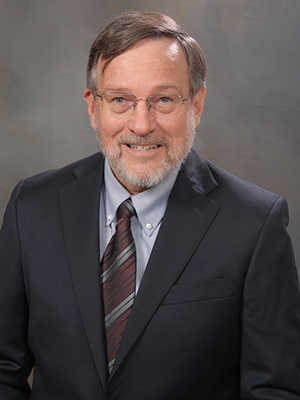
Smart Grid Center
The Smart Grid Center (SGC) brings together several smart grid electric energy efforts already under way in the A&M System and will position the system as a leader in education, research and public service in the modernization of the electricity system. The center will bring together interdisciplinary research teams to develop more innovative and effective smart grid solutions. The SGC aims to transform the electrical grid infrastructure in the United States to meet the demands of the 21 st century.
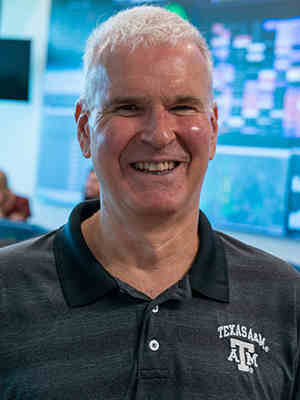
Texas A&M Advanced Scientific Computing Center
The Texas A&M Advanced Scientific Computing Center, a joint center between the Texas A&M Engineering Experiment Station and Texas A&M University, is located on the Texas A&M at Qatar campus. The center brings together a multidisciplinary group of faculty and researchers from a variety of engineering and science disciplines to take on complex computational problems. The center’s overall mission is to be a local and global leader in computational science and engineering, conduct research academic activities that enable broader scientific discoveries, and enhance capacity building. The center has four main areas of interest: high performance computing, computational material sciences and chemistry, computational physics and biology and 3D scientific visualization.
Othmane Bouhali
- Director, Texas A&M Advanced Scientific Computing Center
- Research Professor
- Email: othmane.bouhali@tamu.edu
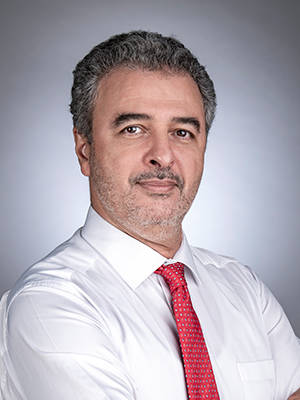
Texas A&M Center for Applied Technology
The Texas A&M Center for Applied Technology (TCAT) pursues enterprising research projects that fulfill client needs while inserting new technologies into society that promote economic growth and an improved quality of life. The TCAT team consists of employees with experience in academia, military, and industry, which gives TCAT the ability to cross interdisciplinary academic boundaries and to couple research strengths with experiences and successes of private industry, military, and other governmental agencies.
Keith Biggers
- Director, Texas A&M Center for Applied Technology
- Phone: 979-458-8963
- Email: biggers@tamu.edu
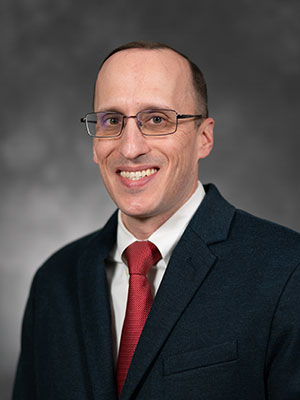
Texas A&M Cybersecurity Center
The Texas A&M Cybersecurity Center is dedicated to combating adversaries who desire to harm American citizens, government entities or corporate America through cyber attacks. The center seeks to advance the collective cybersecurity knowledge, capabilities and practices through groundbreaking research, innovation and education. Working with researchers, faculty and industry leaders, the center prepares a corps of well-educated cybersecurity professionals to pave the way to a cybersecure future.
John Andrew Hamilton Jr.
- Director, Texas A&M Cybersecurity Center
- Professor
- Email: hamilton@tamu.edu

Texas A&M Energy Institute
The Texas A&M Energy Institute pursues and supports new approaches for multi-disciplinary energy research, education and external partnerships. These approaches cross departmental and college boundaries and address all facets of the energy landscape that naturally connect engineering, sciences, technologies, economics, law and policy decisions. Its interdisciplinary research program focuses on the interacting themes of fossil and non-fossil based technologies for energy; multi-scale energy systems engineering; materials, catalysis and separations for energy; and energy economics, law, policy and societal impact. The four interconnected themes are further classified into 10 research areas and 65 research topics. The Texas A&M Energy Institute has more than 205 affiliated faculty from multiple disciplines (e.g., Texas A&M University College of Agriculture and Life Sciences, College of Engineering, College of Geosciences, College of Sciences, Bush School of Government and Public Policy, Mays Business School, College of Liberal Arts and School of Law) who work together with the best in industry to address the complexity and challenges of important energy problems.
Stratos Pistikopoulos
- Director, Texas A&M Energy Institute
- TEES Eminent Professor
- Professor
- Phone: 979-458-0259
- Email: stratos@tamu.edu
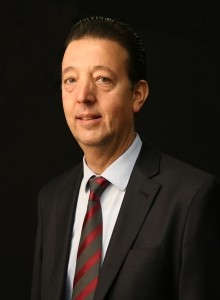
The Texas A&M Global Cyber Research Institute Endowed by Ray Rothrock ’77 and Anthony Wood ’87
The Texas A&M Global Cyber Research Institute (GCRI) endowed by Ray Rothrock ’77 and Anthony Wood ’87 provides a platform for research, leadership, engagement, and cybersecurity education. The Texas A&M GCRI is a joint Texas A&M University and Texas A&M Engineering Experiment Station institute that provides oversight and coordination among cybersecurity programs within TEES and Texas A&M University colleges, institutes and centers.
Sandip Roy
- Professor, Electrical & Computer Engineering
- Director, Global Cyber Research Institute
- Office: WEB 224H
- Phone: 509-781-2299
- Email: sandip@tamu.edu
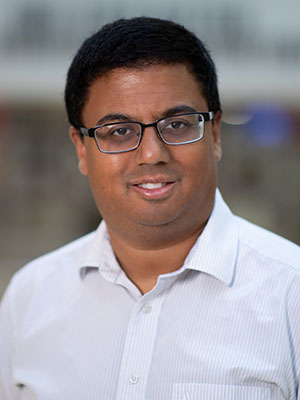
Texas A&M Institute of Data Science
The Texas A&M Institute of Data Science (TAMIDS) serves and fosters collaborations across the university and its affiliated agencies. TAMIDS is a joint undertaking of Texas A&M University with the Texas A&M Engineering Experiment Station and Texas A&M AgriLife Research. TAMIDS is an inclusive umbrella organization for data science and will facilitate interactions between researchers in diverse application areas and those with expertise in core methodologies, promote education in data science across the university, and pursue outreach to commercial and governmental organizations in the wider data science ecosystem.
Nick Duffield
- Director, Texas A&M Institute of Data Science
- Professor
- Phone: 979-845-7328
- Email: duffieldng@tamu.edu

Thomas and Joan Read Center for Distribution Research and Education
The center brings distributors, manufacturers, professional associations, trade publications, faculty and students together to solve distribution problems and to discover new ways of productively and profitably servicing the needs of the market place.
Malini Natarajarathinam
- Director, Thomas & Joan Read Center for Distribution Research & Education
- Professor, Engineering Technology & Industrial Distribution
- Office: FERM 203D
- Phone: 979-845-6766
- Email: malini@tamu.edu
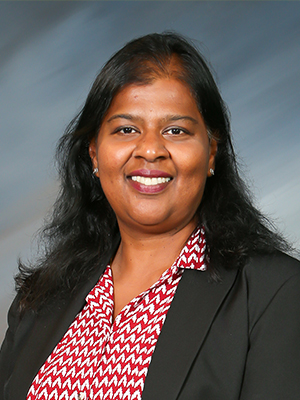
Turbomachinery Laboratory
The Turbo Lab (TL) conducts theoretical and applied research on the reliability and performance of turbomachinery - rotating machinery that extracts or adds energy to fluids. The Turbo Lab’s acclaimed Turbomachinery and Pump Symposia (TPS) is held annually in Houston, Texas, and its sister event, the Asia Turbomachinery and Pump Symposia, biennially in Singapore. Both feature a world-class exhibit hall and cutting-edge technical program.
Eric Petersen
- Director, Turbomachinery Laboratory (TL)
- Phone: 979-845-1257
- Email: epetersen@tamu.edu
